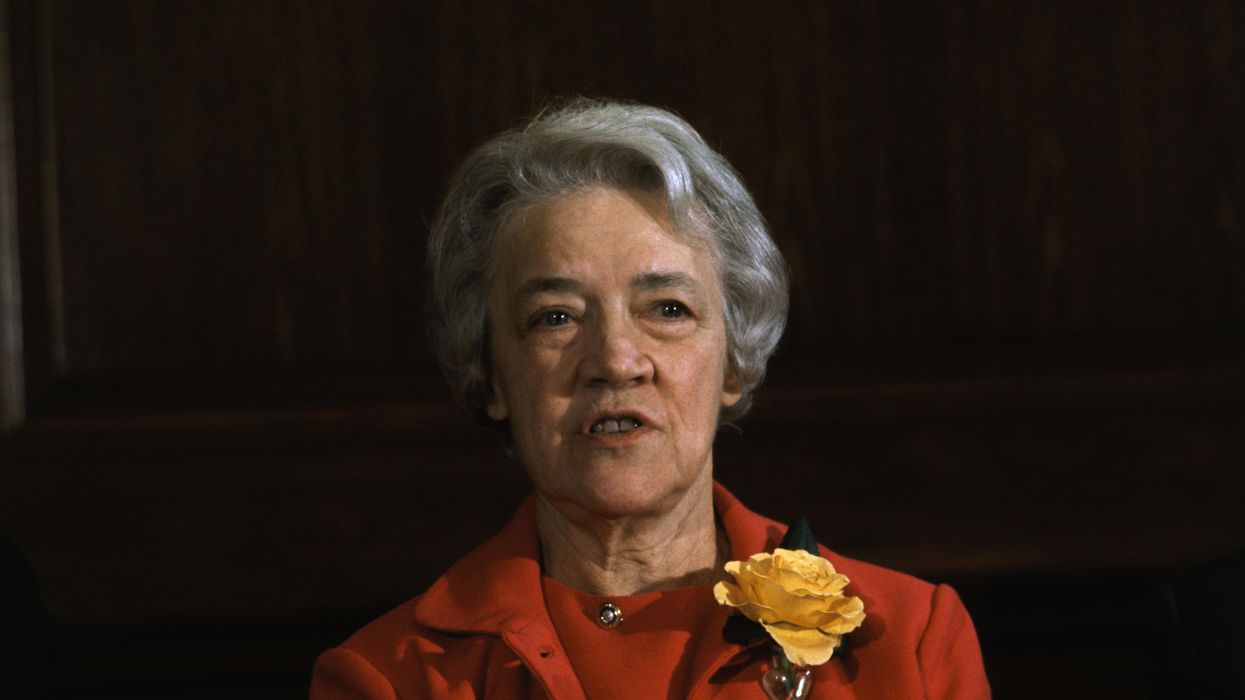Nevins is co-founder and board chairman of the B ridge Alliance Education Fund, a 501(c)(3) organization that houses The Fulcrum.
I have heard and read many great speeches in my lifetime. Some include a single memorable phrase that is remembered forever or powerful words that speak to our common humanity and sway the opinion of those listening. And most often, a great speech is one that takes courage to deliver because of the powerful forces in opposition to the message being conveyed.
Rep. Liz Cheney's speech of May 11, 2021, is one of those great speeches of courage and conviction. Every American, whether you are a Democrat, Republican or independent, surely believes in these words as spoken by Cheney:
"God has blessed America, Mr. Speaker. But our freedom only survives if we protect it. If we honor our oath, taken before God in this chamber, to support and defend the Constitution. If we recognize threats to freedom when they arise."
She spoke of the rule of law. She spoke to the truth that the election is over and spoke of those with great power who refuse to accept the rulings of our courts and are therefore at war with the duty of elected representatives, and yes, everyday citizens to uphold the rule of law.
"Every one of us who has sworn the oath [to the Constitution] must act to present the unraveling of our democracy."
In these partisan times I know some will shrug off her speech as an overreaction and others will see it as partisan. If defending our democracy and speaking the truth to the American people is partisan then I confess I am partisan. Yes, I am a partisan for democracy.
Cheney's speech reminds me of the speech delivered courageously by Margaret Chase Smith, the first woman senator of the United States in 1951. Smith was also a conservative woman, standing alone against powerful conservative voices attacking the very freedoms and the rule of law that so many professed to believe in but were too cowardly to stand up for.
The divide that separated us as a people 70 years ago, during Joe McCarthy's ruthless hearings to track down Americans who without proof were alleged Communists, is very similar to the mood in our country today. We were a deeply divided country then as we are today and thus looking back can serve as a reminder that if we can't remember history we will be condemned to repeat it.
As Smith boarded the Senate subway to head to the chamber floor on June 1, 1950, another senator asked her why she looked so serious and asked her if she was going to give a speech. Her reply without hesitation was, "Yes, and you will not like it!" — surely the same feeling that Cheney had 70 years later before her speech to Congress.
Smith's speech is now called "The Declaration of Conscience," as perhaps Cheney's speech will be similarly entitled 50-plus years from now.
Smith, the first and at the time only woman in the Senate, had the courage to speak out. These words should be remembered today:
"I speak as a Republican. I speak as a woman. I speak as a United States Senator. I speak as an American. Those of us who shout the loudest about Americanism in making character assassinations are all too frequently those who, by our own words and acts, ignore some of the basic principles of Americanism:
The right to criticize;
The right to hold unpopular beliefs;
The right to protest;
The right of independent thought.
Yet to displace it with a Republican regime embracing a philosophy that lacks political integrity or intellectual honesty would prove equally disastrous to this nation. The nation sorely needs a Republican victory. But I don't want to see the Republican Party ride to political victory on Fear, Ignorance, Bigotry, and Smear."
Both Cheney and Smith understood that a short-term victory would be a long-term defeat for the democracy they were elected to uphold. But most importantly they showed the courage and the leadership that President John F. Kennedy spoke of in his Pulitzer Prize-winning book recounting the stories of eight U.S. senators who risked their careers by embracing unpopular positions for the greater good. JFK said "great crises produce great men, and great deeds of courage." In this case it was two great women who exhibited a profile in courage.
Character and courage is the legacy that more of our elected representatives should aspire to as leaders. As Winston Churchill said: "Success is not final, failure is not fatal: it is the courage to continue that counts."
Cheney's closing words is a clarion call that I hope reaches the hearts of all Americans:
"We must love America so much that we will never yield in her defense. That is our duty."




















